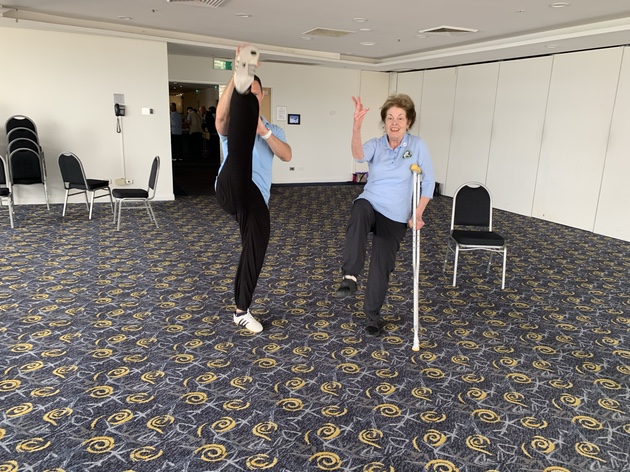I just finished two weeks of tai chi training in Australia. At the end of the first week, each class put on a demonstration for an audience, sharing the tai chi form we learned during the week. My very talented teacher placed me in a responsible position in the front row, despite the fact that I had a severely sprained ankle. At the end of our demonstration, I felt deeply disappointed in myself. I had not performed up to my standards. I’d let myself down and felt like I had also let my teacher down. Sadly, I considered my mistakes to be personal failures rather than a normal part of learning and growing.
I’ve written before about my battles with perfectionism. It turns out, I’m not alone. Unfortunately, it’s a disease that many of us have experienced in our lives.
In Brave Not Perfect, best-selling author Reshma Saujani shares just how widespread the disease is. She argues that girls, especially, are taught from a young age to be perfectionists and overcautious about making mistakes.
In her Ted Talk, which garnered an overwhelming response, Saujani tells a story that I find highly disturbing. Lev Brie, a professor of coding at Columbia University, found that when male students struggled with coding they would often say, “Professor, there’s something wrong with my code.” But when female students struggled, they’d be more likely to say, “Professor, there’s something wrong with me.”
I wish this weren’t the truth for so many of us.
I’m a former linguist, and it seems to me that even our use of language points to the fact that the perfectionist disease is especially rampant in the U.S., as compared to other countries. Think about how often you say and hear “perfect.” For example, “You can meet up tomorrow after work? Perfect–see you then!” By comparison, the French say the word “parfait” (perfect) much less frequently. Instead, they might say “formidable” or “genial” – meaning “wonderful.”
“Wonderful” rather than “perfect.” What a powerful difference between those two words and the meanings behind them!
I recently had the privilege of interviewing Susie Rinehart, author of Fierce Joy for the podcast show Choosing Joy Over Fear and Brave Over Perfect. Hers is a story of one woman rising from rock bottom, but it is also the story of the transformation that is possible for all of us all when we stop chasing perfection and worthiness. Susie Rinehart seemed to have it all: two beautiful kids and a loving husband, a job where she was respected as a leader, and medals as an ultramarathon champion. Then she found out that a tumor on her brainstem threatened to take away her voice…and her life. With so much at stake, Susie had to rethink how she wanted to live. Fierce Joy is the incredible story of one woman who learned to shed perfection and find joy in every day life.
I don’t wish to play it safe.
I wish to continue taking on what life throws at me, even new and challenging tai chi forms, no matter how many mistakes I make along the way.
And I’d much rather try and fail, than regret not trying at all.


Marlena says that at this point in her life she would much rather try and fail, than regret not trying at all. It is easy for me to recognize how courageous it is for her to live by that standard. During my years in grade school for some reason I came to the conclusion that “I’m not good enough and therefore I’m not okay.” Having spent a lifetime trying not fail in order to prove to others that I was good enough, I find Marlena’s commitment to trying and failing rather than not trying at all a bit frightening.